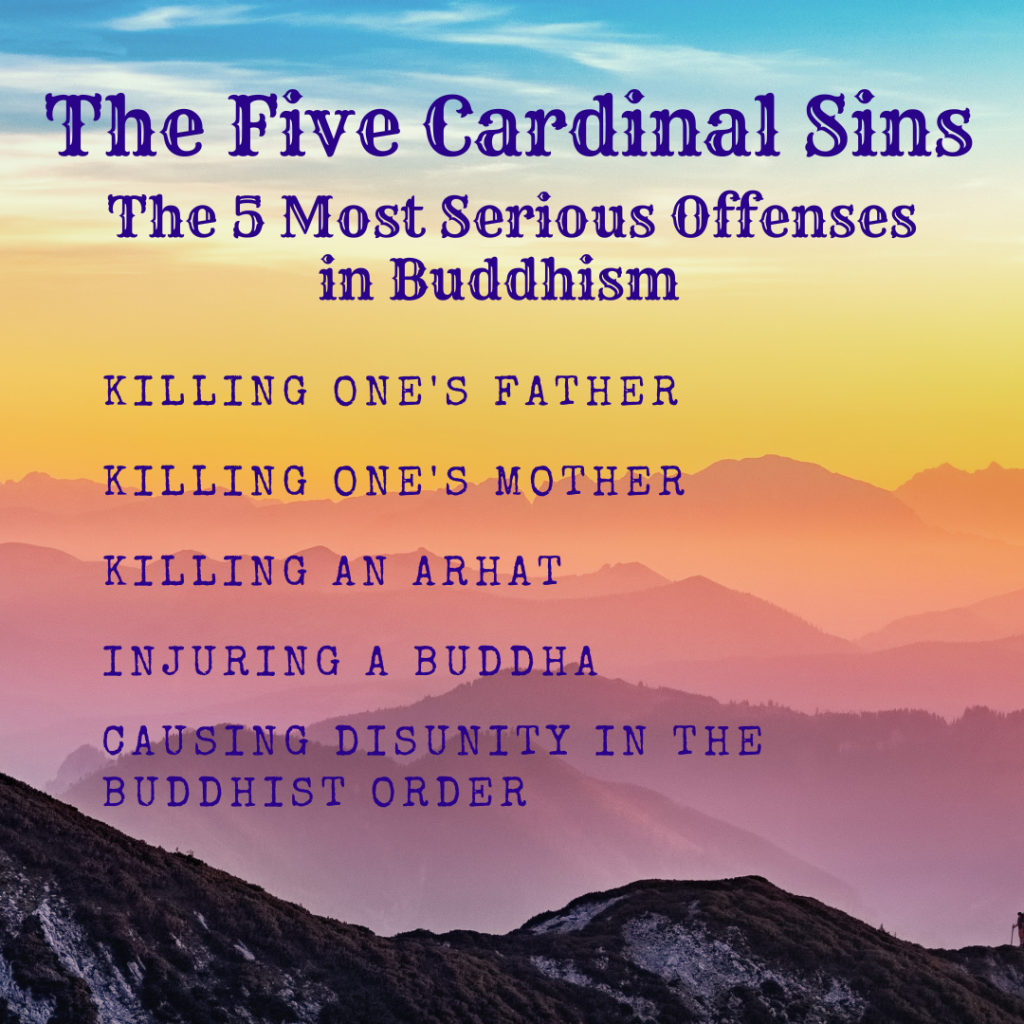
The Five Cardinal Sins
In a religious context, sin is a transgression against divine law or a law of God.[1] Each culture has its own interpretation of what it means to commit a sin. While sins are generally considered actions, any thought, word, or act considered immoral, selfish, shameful, harmful, or alienating might be termed “sinful”.[2]
According to this definition from Wikipedia, a sin meets the same criteria as the definition of karma: thought, word, deed. However, karma constitutes any [thought, word, deed] good or bad, while sin is defined as something that is considered “immoral, selfish, shameful, harmful, or alienating.” This leaves the definition of sin open to our own interpretation.
What is immoral? What is selfish? What is shameful? What is harmful? What is alienating?
In comparison, sin(s) in Buddhism, mostly involve the murder of others.

Why the discrepancy? In all my research, readings and practice of Nichiren Buddhist philosophy with the SGI-USA, I have never found any teaching that specifically addresses discrimination against sexuality or race. I have only found statements regarding the treatment of people according to gender where it specifically states “there should be no discrimination among those who propagate the five characters of Myoho Renge Kyo in the Latter Day of the Law, be they men or women.”

Under the Moon
You May Also Like

Good Fortune
November 1, 2020
The Real Aspect of the Gohonzon
September 13, 2020
